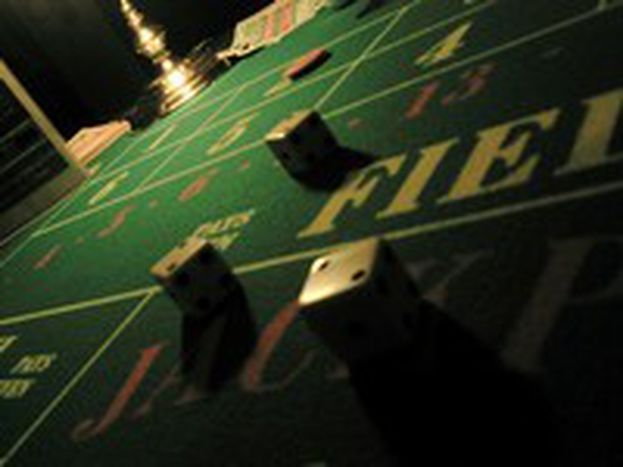
Online outlaws
Published on
Translation by:
 claire hooper
claire hooper
10 million online gamblers, 2, 000 websites: the online gaming community is ever-expanding, becoming a huge phenomenon in Europe. But in legal speak, things are far from harmonised
23-year-old Aurélien doesn't spend all his time with his nose stuck in his books. Like every other weekend, the history student bets on the European football pools offered by the Austrian gambling firm ‘Bwin’. 'I predicted an Inter Milan victory against Turin, as well as Real Madrid beating Zaragoza. I’ve won more than double by betting ten euros,' he says, revealing his attraction to the game. Having opened an account a year ago, Aurélien finds himself playing more and more 'because I win more often than I lose.'
According to a 2003 European Commission report, the net income of the EU gaming industry was estimated at 8, 926 billion Euros. Analysts from Merrill Lynch count on the gross takings for sporting bets increasing to as much as 150 billion dollars by 2015. With more than 30% more players in 2006 alone, the sector is making people talk.
Legal spin
The main gaming operators such as Unibet, Betclick, Gamebookers or Sportingbet offer the usual poker and casino games.
They also focus on bets on the thousands of sports events taking place daily throughout the world, be it the Australian Open tennis tournament or even a game of chess between two little-known but illustrious players. The strength of these sites is that they offer their gamblers bids at any time of day, operation is simple, and all in all, it is appreciably discreet.
Although they have licences recognised by the European Commission, these sites are banned in some EU countries: France, Denmark, Finland, Germany, Hungary, the Netherlands and Sweden. And the reason being? State monopolies. For example in France it’s the French national lottery ‘la Francaise des jeux’ and the Pari Mutuel Urbain (PMU) who control and authorise sports betting. Casinos need special licences.
'The advent of the Internet has enabled European bookmakers, who benefit from a more liberal legislation, to take bets in countries where there is a state monopoly,’ emphasises Thibault Verbiest, a barrister specialising in internet law registered on the bar in both Paris and Brussels. The trick of these newcomers is setting themselves up in countries where there is more tolerant legislation and offering their services via the web, using the language of the target country.
Pulp friction
Old-school operators didn’t take long to complain about these overly-pervasive virtual competitors. Meanwhile the latter immediately retaliated by citing the freedom of movement of services guaranteed by article 49 of the Treaty of Rome. This is a liberalisation regularly encouraged by the Barroso Commission which has recently implemented the Bolkestein directive – aiming at creating one single services market.
In 2003, the European Court of Justice (ECJ) passed the important Gambelli ruling - the authority of which is now contested by monopoly holders and those who have just joined the sector on the net. According to this decision, states cannot restrict the principle of free movement of services unless they justify it by a breach of the peace: the mafia or organised crime, or an attack on the consumer, who could get addicted. In January 2004, the Commission aimed to have the sector standardised by 2010 – but to no avail.
But this resistance by state monopolies could all be in vain. The European Betting Association (EBA), which represents all the big European games operators authorised for online gaming, has recently addressed formal letters to protectionist countries suggesting opening up their markets.
The proposal is likely to set the foundations for a Europe-wide legislation. The EBA stresses that ‘competitive services should be based on the principle that an operator with a permit in one country may, unhindered, supply the same offers of service to clients in all EU countries.’ This is a way of regulating illegal betting sites - according to a study carried out by the French auditing firm Lexsi, ‘currently 75% of online gaming in France and Europe is illegal.’
Austrian heads for the chop
In September last year, exasperated by the vagueness of the law, France accused the Bwin company of illicit bets and prohibiting lottery advertising. It's an example of one of the companies dropping out of favour with certain EU countries.
It is also at the heart of a real legal tangle, whose outcome could affect the future of the sector. Bwin lost its work licence in Germany, its main market, in August 2006, following a decision which cited that it was not respecting the German state monopoly. Both chief executives, Manfred Bodner, 47, and Norbert Teufelberger, 41, also hit the news recently when they were arrested by French authorities claiming a breach of gaming regulations.
Meanwhile, more and more countries are liberalising online gaming: Engand, Malta, Belgium, Austria and more recently Italy have allowed their citizens to bet on Bwin quite legally. These discrepancies within the EU will probably last for many months. All that counts is the responsibility for the player - who takes the risk of losing what he bets if, for example, he lives in France. Bwin warns the user that the company 'has no obligation to explain, warn or clarify.’ Risky bet.
Translated from Bruxelles et les seigneurs du jeu


